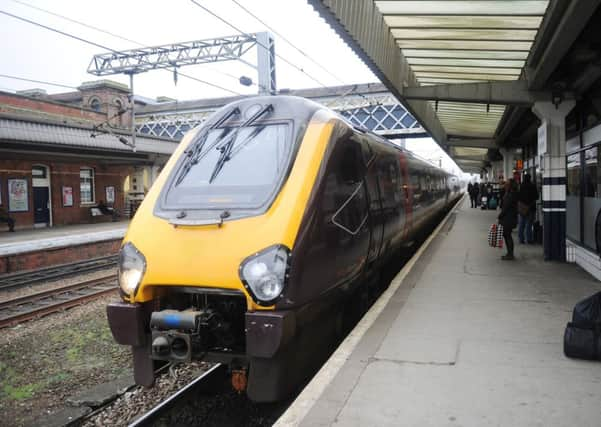Rail commuters face new year price hike


The increase, announced by rail industry body the Rail Delivery Group, means travellers will be paying more for their season tickets than ever before.
Although the average fare rise is 2.2 per cent - the lowest increase for five years - the rise for regulated fares, including season tickets, will be up to 2.5 per cent.
Advertisement
Hide AdAdvertisement
Hide AdMichael Roberts, Rail Delivery Group director general, said: “Money from fares goes towards running and maintaining the railway.
“This benefits not just passengers and businesses but communities across the country, by improving journeys, creating employment and helping to boost the economy.
“Over the next five years, Network Rail is spending on average £27m a day on a better railway, alongside commitments made by train companies to improve services. That will mean more seats, better stations and improved journeys.”
Since 2007, West Yorkshire’s fare rise has been larger than other areas because of an extra three per cent to fund extra carriages on trains across the county.
Advertisement
Hide AdAdvertisement
Hide AdMartin Abrams, from the Campaign for Better Transport said: “Consecutive governments have deliberately forced up rail fares and it needs to stop. During this Parliament, many fares have risen three times faster than wages, affecting all those who rely on trains and putting enormous strain on household budgets.”
“Whoever is in power after the General Election urgently needs to adopt a much fairer approach to ticket prices. There must be a permanent end to above inflation fares rises, not just the temporary respite currently in place.
“Using a more accurate measure of inflation would also save commuters hundred of pounds. The government should drop the discredited Retail Price Index as a basis of fares and use the Consumer Price Index favoured by the Office for National Statitics instead.”
“We also need tickets that are in line with modern lives. More than eight million people now work part-time and many more work flexible hours. Very few train companies offer tickets for this growing group, leaving them stuck paying over the odds for full-time season tickets they don’t need. Government must rethink its approach on this and not abandon its promise of nationwide help.”